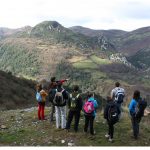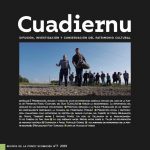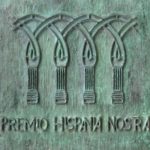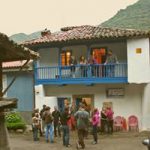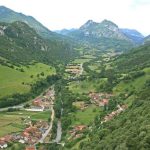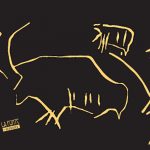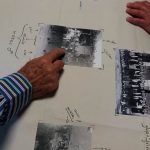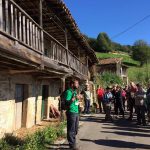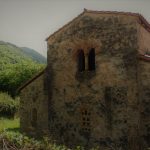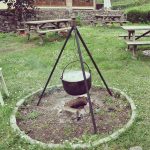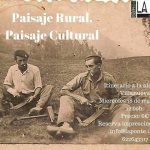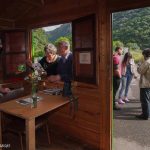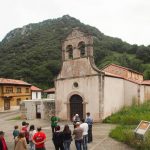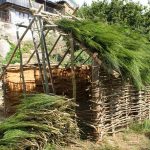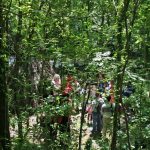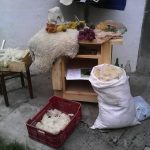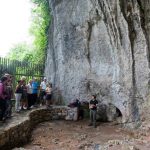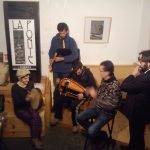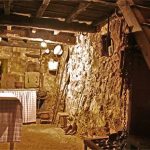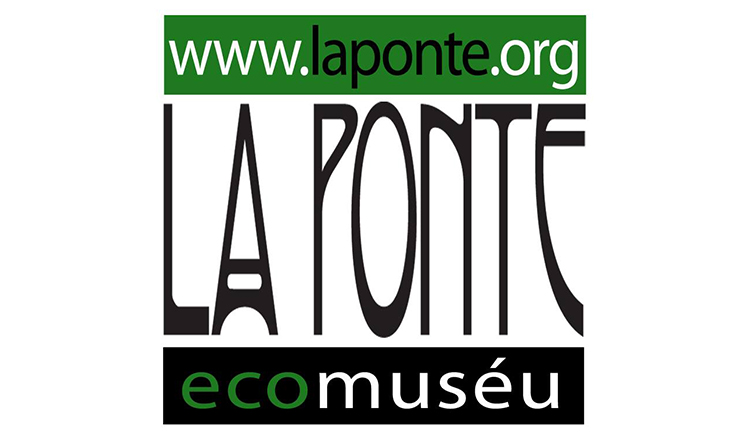
La Ponte-Ecomuseum
Observatory of Social Innovation and Cultural Heritage (HESIOD)/ Archaeology of the medieval peasantry/ Archive of the oral memory of Saint Adriano
La Ponte consists of an eco-museum and a research entity, focusing on various topics such as history, archeology, cultural studies and heritage that was promoted by people linked to the territory.
La Ponte Eco-museum, located in a rural district, is an open, experimental and collaborative interdisciplinary workspace in which science, territory and heritage are central themes.
And what is an eco-museum? There are several definitions of eco-museum, all inaccurate, complicated, and difficult to understand. Let’s simplify it: the eco-museum is an action carried out by a community, based on its heritage, for its development. Therefore, the eco-museum consists primarily of a social project, and secondarily a cultural and scientific one.
Observatory of Social Innovation and Cultural Heritage (HESIOD): The good practice is based on the development of HESIOD, a part of a research project developed between University College London and La Ponte Eco-museum.
HESIOD is a platform aimed at identifying, analyzing, giving visibility and disseminating socially innovative experiences in the field of cultural heritage: museums, collaborative projects, innovation laboratories, community centers, co-working spaces, platforms and co-creation processes, co-production, crowdsourcing, crowdfunding, etc.
Archaeology of the medieval peasantry: The good practice is based on the Contribution on the Archaeological excavation campaign of Villanueva de Santo Adriano.
History and the way of commemorating the past has never been and is still neither objective or unbiased. History has been systematically used, and continues to be used, to provide legitimacy to our acts today. For this reason, only a part of our collective memory has been rescued, forgetting everything related to those social groups that had no influence or power: women, subordinates, slaves, marginalized, poor, etc., all men and women “without history”. Among them are the peasants who for more than 1000 years were the labor force that moved Europe, who disappear from the history books to make room for kings, their dynasties, their conflicts of interest, their wars …
What do we know about them? How did they live? How did they provide food for themselves? How did they relate to other social groups? These are questions which is fair to be answered, beyond the classic sources of historical knowledge like written documents, and resorting to archaeological methodology, which refers us to the harsh material reality of these societies.
Since 2009, an interdisciplinary work team has developed a work methodology in two villages in Asturias, aiming among other objectives, to recover archaeological information about the groups of peasants that inhabited them during the Middle Ages. One of these villages is Villanueva de Santo Adriano, where in recent years archaeological campaigns have been carried out every year to assess the extent of a medieval peasant settlement that was discovered back in 2010.
Archive of the oral memory of Saint Adriano:
When I can’t remember, where will my memory go?
Remembering is one thing and remembering is another.
Antonio Machado.
Oral history not only allows us to record the memory that remains alive in the collective remembrance of a human group, neither it is a channel for the expression of particular or common testimonies, but it is a privileged source from which new knowledge is being generated. The work of various sociologists, anthropologists and historians has contributed to consolidating the idea that the use of the oral source is a fully valid historiographical and methodological option, and today, thanks to this, it is recognized as one of many possible ways of approaching the historical knowledge.
The information collected through interviews in Santo Adriano is an attempt to provide new information for establishing a story closer to the reality of the characters who narrate it, giving them a voice in front of the great men, protagonists of a different story, always marginalized and manipulated.
With the creation of an archive of oral history, we intend to contribute to the preservation of this classic channel of expression, which is dialogue, giving prominence to those who today possess one of the greatest riches of our time, their memories.
Traditionally, the role of an old person has always been that of a repository of collective memory, somebody with a wealth of wisdom who at any time could advise those who lacked experience and knowledge. However, today our elders have lost their role as transmitters of culture. Residences where they are stored have been confined as useless objects for their community, thereby depriving them of the possibility of actively participating in the discussions and progress of their societies. With this small project we intend to preserve part of our collective memory and restore a certain prominence to those who have progressively and unfairly lost it.
Information
Name of the Ecomuseum: La Ponte-Ecomuseum and research center
Geographical location: Spain, Asturies region, province of Villanueva de Santo Adriano
Year of establishment: 2013
Network: Ecomuseums DROPS Platform
Website: https://laponte.org/

